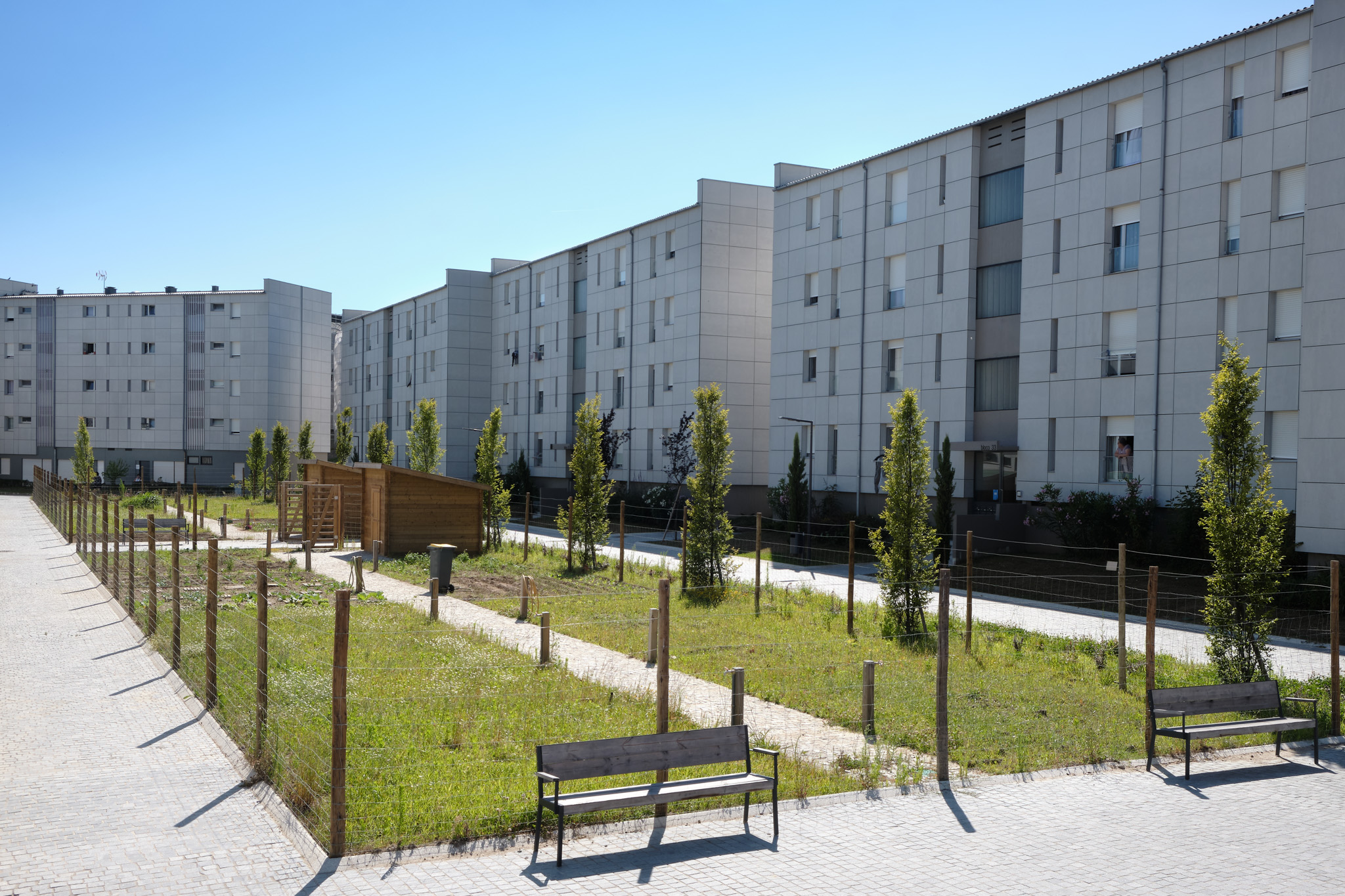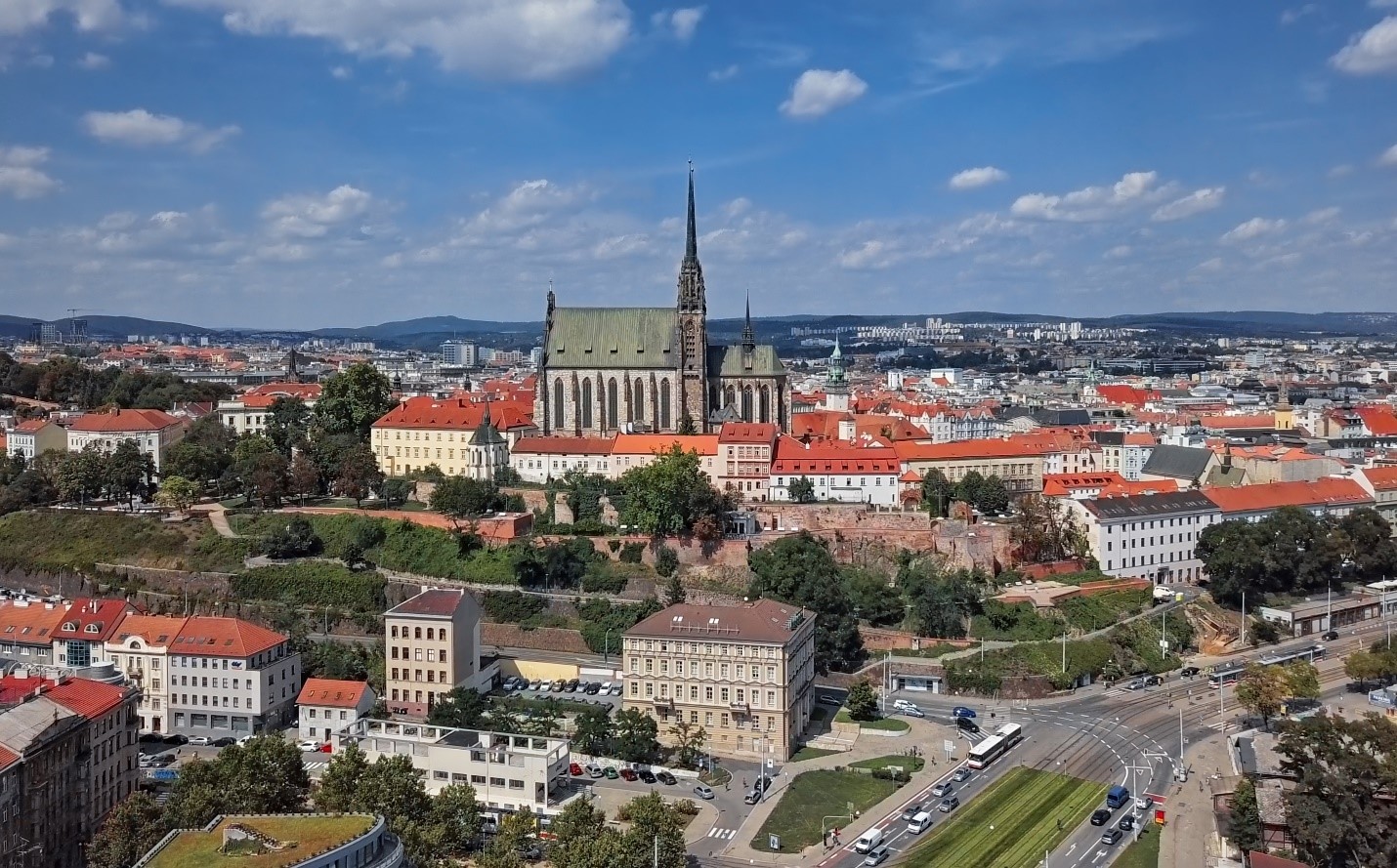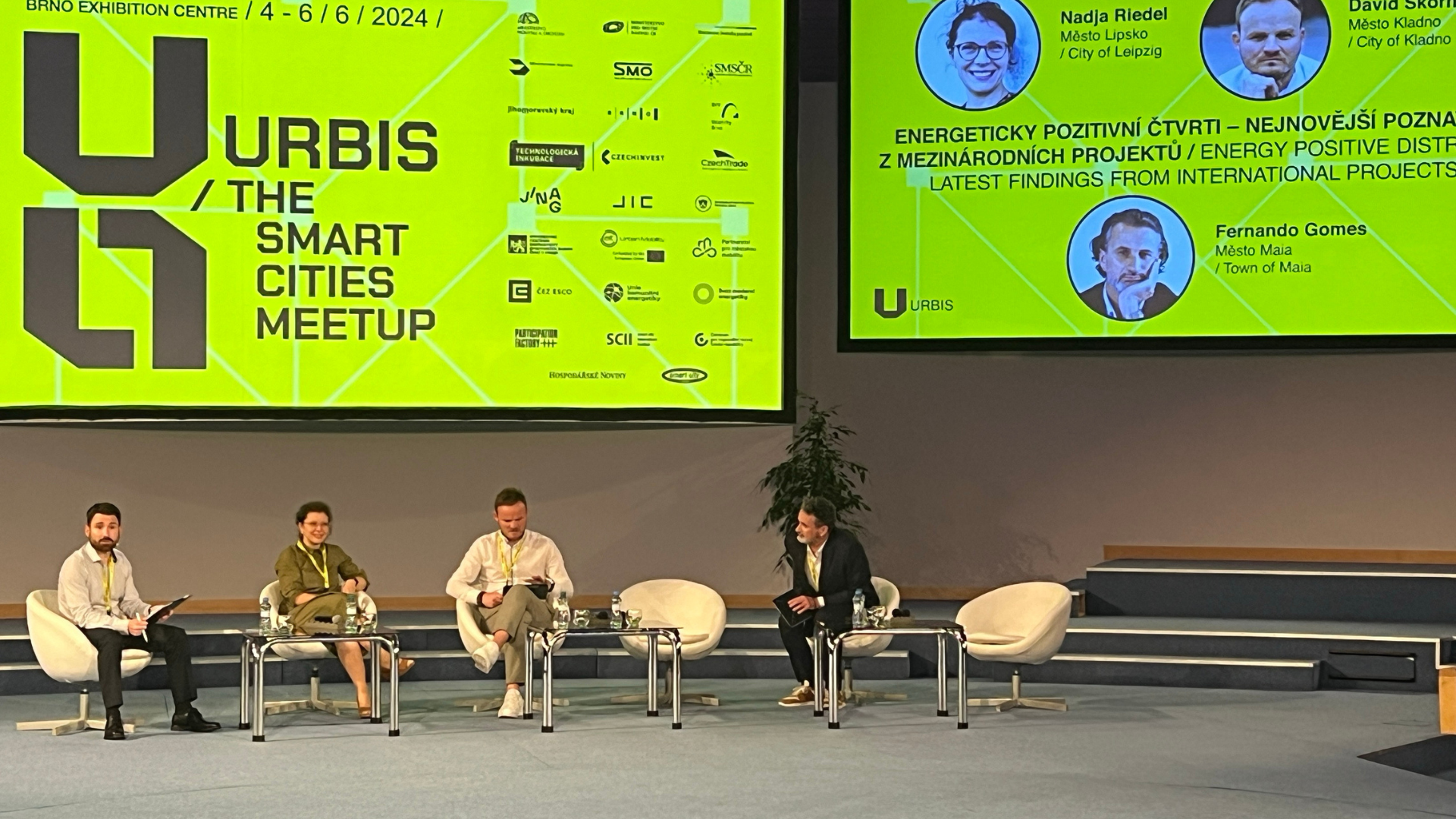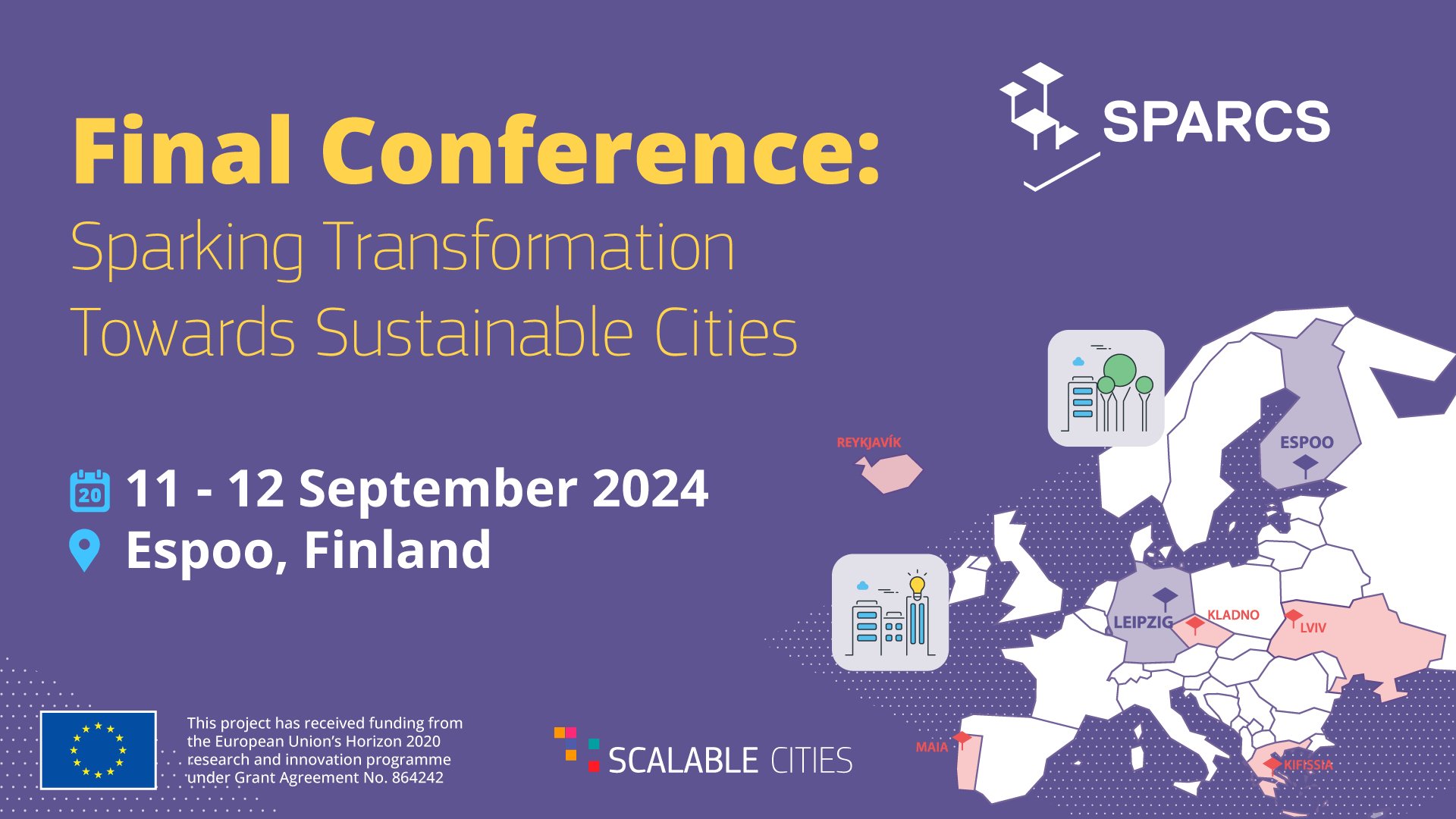Maia
Maia aims to become a Smarter, Sustainable, Inclusive, and Integrated Zero Carbon Community. To achieve this, the city’s energy policy focuses on diversifying primary energy sources and increasing the economy’s energy efficiency. The city’s Sustainable Energy Action Plan (SEAP) consists of a set of technical measures to be implemented up to 2030 through actions focusing on residential and service buildings, the transport sector, public lighting, and industry. Maia also adopted its Climate Adaptation Action Plan, with about 60 measures, organized within different thematic intervention areas, such as urban development, buildings (also addressing energy poverty), water, forest, environmental monitoring, and public awareness.
A central aspect of these plans is the citizen’s energy and climate change literacy as a key role towards energy transition and urban transformation. It is the goal of the municipal administration for Maia to become an example to other cities regarding energy efficiency by creating rankings among public entities, managing and disseminating best practices, and developing an evolutionary barometer model for targeted improvements each year.
GOALS
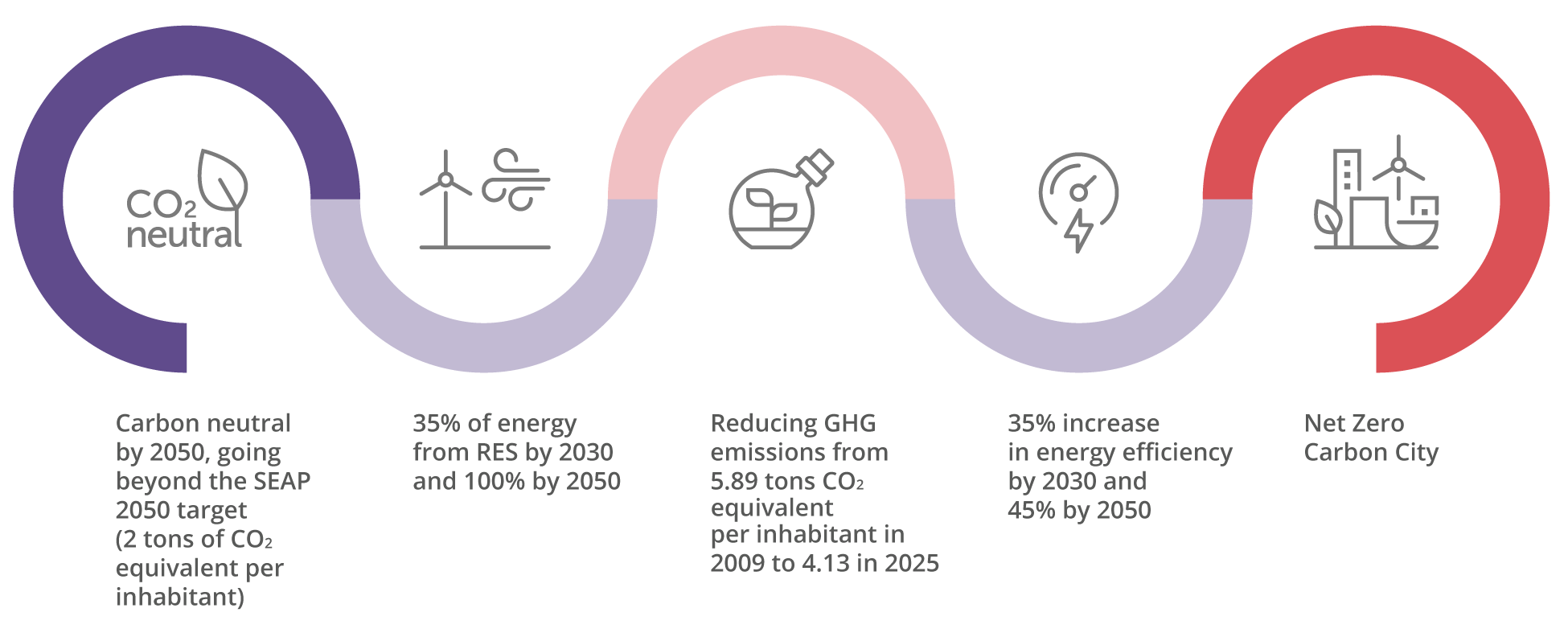
TOPICS
Urban planning and land use
Maia seeks a balance between the densification of its urban areas, mainly the city centre and the ones along the existing and planned main public transport nodes (train, tram, metro, buses), privileging the urban regeneration of organized and multifunctional neighbourhoods, improving their quality of life, with the preservation of the still existing rural identity values. This preservation is to be achieved namely through protecting rural areas and farms with historical and architectural, and natural values, fostering new uses and integrating this heritage into an integrated network of connected green spaces provided by a mesh of green spaces and corridors for protection and recreational functions, appreciation and promotion of biodiversity and of the natural and cultural landscape as well as for carbon capture and storage.
Energy
Maia is working to become a carbon-neutral territory by implementing technological solutions that increase renewable energy-based decentralized electricity production and energy efficiency, as well as increased citizen’s awareness to ensure asubstantial reduction in energy consumption levels. PED’s concept is crucial for Maia’s ambitions, so we aim to get more experience implementing smart grids and positive energy blocks. These experiences would produce data that can be taken as the basis for concrete research on different solutions for peak shaving, local electricity generation, and decrease in energy consumption, and also analyze the best replication strategies, considering the different energy sources and the possibility of integrating them in the best possible ways. The city also aims to improve the amount of locally generated electricity based on renewable energy, mainly by solar photovoltaic, starting with the use of municipal buildings’ roofs as grounds for sustainable solutions, leading and encouraging the transition towards the use of roofs for sustainability solutions in other sectors of the society, like industry or residential buildings. This should also be coordinated with the implementation of Energy Communities, assuring public engagement along the energy, urban and social transition.
Mobility
Maia’s priority is to reduce the use of private cars. It privileges soft transport modes, such as walking, cycling, and the public transport system. Complementary transportation needs for freight and people are based on an environmentally friendly system (fewer vehicles and better quality freight), improving the overall quality of life and giving people good reasons for loving and standing by their city.
To achieve these goals, Maia is investing in bike lanes, better pedestrian areas and raising public awareness about the need to reduce the use of private cars for daily commuting. Maia also opened the largest public charging hub for electric vehicles in a Portuguese city in the city centre and intends to keep promoting electric mobility, especially shared electric mobility and other sustainable mobility practices.
Digital Transition
Enabling the City’s Digital Transformation is crucial for urban transformation, especially regarding the need for systematic monitoring, assessment and data sharing. Maia has some ongoing investments in the digitalization of some key urban facilities/services: waste collection, water distribution and several pilot projects regarding energy efficiency, sustainable mobility, irrigation system for public green spaces, air quality, and noise, among others. With these specific thematic experiences, ongoing within the pilot project BaZe-Living Lab Maia, we are setting up a prototype for data integration, analysis and management designed to collect, integrate and disseminate useful information to all stakeholders in order to improve citizens’ quality of life and bring people together towards carbon neutrality.
Citizen Engagement
Co-creation of smart and sustainable solutions is at the heart of Maia’s strategy, and recent examples are the work that is being delivered along the City’s Master Plan Revising work, the Strategic Plan for Sports Development, the Youth Participatory Budget, the participation in the Municipalities in Transition framework, to better interact and engage with local communities, within the pilot project BaZe-Living Lab Maia and, of course, our local public initiatives within SPARCS, especially the City Vision workshops, including schools engagement
Governance
Integrative policies must include integrative, interactive, innovative, and flexible forms of governance. Current regulations and the existence of so many different levels of decision-making processes could act as obstacles to delivering the transition goals. The experience of trying to deliver cross-sectional projects allowed us to understand that collaborative work processes need to be promoted, supported and disseminated. The full engagement of the key stakeholders is crucial for the success of these policies as well as the wide participation of the local community.
